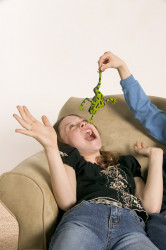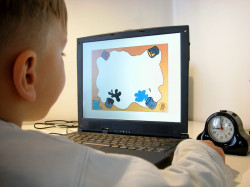Vocabulary
Here are the words from the story and some more on the same topics.
The vocabulary lists always show:
- the word, singular and plural
- the pronunciation
- the part of speech
- the definition
- an example
Sometimes you also find synonyms or antonyms:
- A synonym is a word that has the same meaning.
- An antonym is a word that has the opposite meaning.
At the end of each list, you can practise the words with our vocabulary trainer. First, choose the information that you want to be displayed. Then choose if you want to enter the word or the translation. Press "start" and write the solution into the box. Finally, press "enter" to get feedback.
Wortschatz
Hier findest du die Wörter aus der Story und noch einige mehr zu den selben Themen.
Die Vokabellisten zeigen immer:
- das Wort, Einzahl und Mehrzahl
- die Aussprache
- die Wortart
- die Definition
- ein Beispiel
Manchmal findest du auch Synonyme oder Antonyme:
- Ein Synonym ist ein Wort mit der gleichen Bedeutung.
- Ein Antonym ist ein Wort mit der gegensätzlichen Bedeutung.
Am Ende jeder Liste kannst du die Wörter mit unserem Vokabeltrainer üben. Wähle zunächst, welche Information du angezeigt bekommen möchtest. Dann entscheide, ob du das Wort oder die Übersetzung eingeben willst. Klicke "start" und schreibe die Lösung in das Eingabefeld. Dann drücke "Enter", um Feedback zu bekommen.
In this unit you learn words from the following categories:
In dieser Unit lernst du Wörter aus den folgenden Wortfeldern:
Wörterliste: Basic vocabulary
-
Übersetzung anzeigen
Übersetzung:- mithören
- belauschen
Anzeige / Eingabe anpassen
Tastatur-Shortcuts: Enter: Auswerten / Zur nächsten Abfrage | Alt+1: Tipp | Alt+2: Lösung
Wörterliste: Sports and hobbies
-
Übersetzung anzeigen
Übersetzung:- Freizeitaktivität
Bild anzeigen
 imgserver-45-4608069
imgserver-45-4608069Bild anzeigen
 imgserver-45-4619594
imgserver-45-4619594-
Übersetzung anzeigen
Übersetzung:- Brettspiel
Bild anzeigen
 imgserver-45-4665085
imgserver-45-4665085Bild anzeigen
 imgserver-45-7159741
imgserver-45-7159741-
Übersetzung anzeigen
Übersetzung:- Baseball
Bild anzeigen
 imgserver-45-7159759
imgserver-45-7159759-
Übersetzung anzeigen
Übersetzung:- Basketball
Bild anzeigen
 imgserver-45-78457378
imgserver-45-78457378-
Übersetzung anzeigen
Übersetzung:- Volleyball
Bild anzeigen
 imgserver-45-4719633
imgserver-45-4719633-
Übersetzung anzeigen
Übersetzung:- Fußball
Bild anzeigen
 imgserver-45-7159768
imgserver-45-7159768-
Übersetzung anzeigen
Übersetzung:- Tennis
Bild anzeigen
 imgserver-45-7196135
imgserver-45-7196135
What's the wrong word in the category? Click on the word that is wrong. If you need help, go to the wordlist of hobbies.
Welches Wort gehört nicht in die Kategorie? Klicke das falsche Wort an. Falls du Hilfe benötigst, gehe zur Wörterliste hobbies.
Anzeige / Eingabe anpassen
Tastatur-Shortcuts: Enter: Auswerten / Zur nächsten Abfrage | Alt+1: Tipp | Alt+2: Lösung
Wörterliste: Adverbs of frequency
-
Übersetzung anzeigen
Übersetzung:- normalerweise
-
Details anzeigen
-
Synonym(e):usually
-
-
Übersetzung anzeigen
Übersetzung:- manchmal
-
Details anzeigen
-
Synonym(e):occasionally
-
Anzeige / Eingabe anpassen
Tastatur-Shortcuts: Enter: Auswerten / Zur nächsten Abfrage | Alt+1: Tipp | Alt+2: Lösung
Anzeige / Eingabe anpassen
Tastatur-Shortcuts: Enter: Auswerten / Zur nächsten Abfrage | Alt+1: Tipp | Alt+2: Lösung











